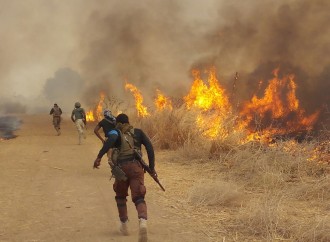
n less than a week between February 20 and 23, two deadly attacks in Dikwa and Maiduguri led to several casualties, including a number of civilians who were caught in the crossfire. These attacks took place in the backdrop of an increasingly volatile security situation, as well as the ongoing implications of the global COVID-19 pandemic.
“The devastating consequences of these attacks are a stark reminder of the human toll of the active armed conflict in North-East Nigeria,” said Tahmineh Janghorban, the ICRC’s head of sub-delegation in Maiduguri. “The increased level of violence affects people’s lives in many more ways than most can imagine. It impacts not only their livelihoods and access to health care and other basic services, but also their mental health, their family ties, and their dignity. This trauma can last for years, even after the conflict had ended.”
Committed to providing a quick response to emergencies by facilitating access to health care facilities, the ICRC continues to respond to and provide emergency medical aid and life-saving care to people. Working in situations of armed conflict, airlifting the wounded by helicopter is sometimes the only way to transport them to medical facilities safely and in time to receive care.
Humanitarian concerns
The latest illustration of the unpredictable and highly volatile nature of the conflict in Nigeria comes in the form of the recent spate of attacks in Borno State and highlights the importance of safe and reliable access to medical care, in particular for the wounded and other victims of violence.
People living in the capital city or other urban centres often struggle to access basic health care due to the chronic insecurity on the roads.
Operational notes
During the past five days, ICRC’s surgical team in Maiduguri received and provided care for 17 people wounded as a result of the two incidents.
Following the Dikwa attacks, four patients were airlifted out of the area on the weekend of 20 – 21 February to receive medical aid from the surgical team in Maiduguri. Another attack in the state capital Maiduguri on 23 February saw 13 patients admitted to the surgical ward in the hospital. One urgent, life-saving surgery was performed the night of the attack, and the others in the following days.

